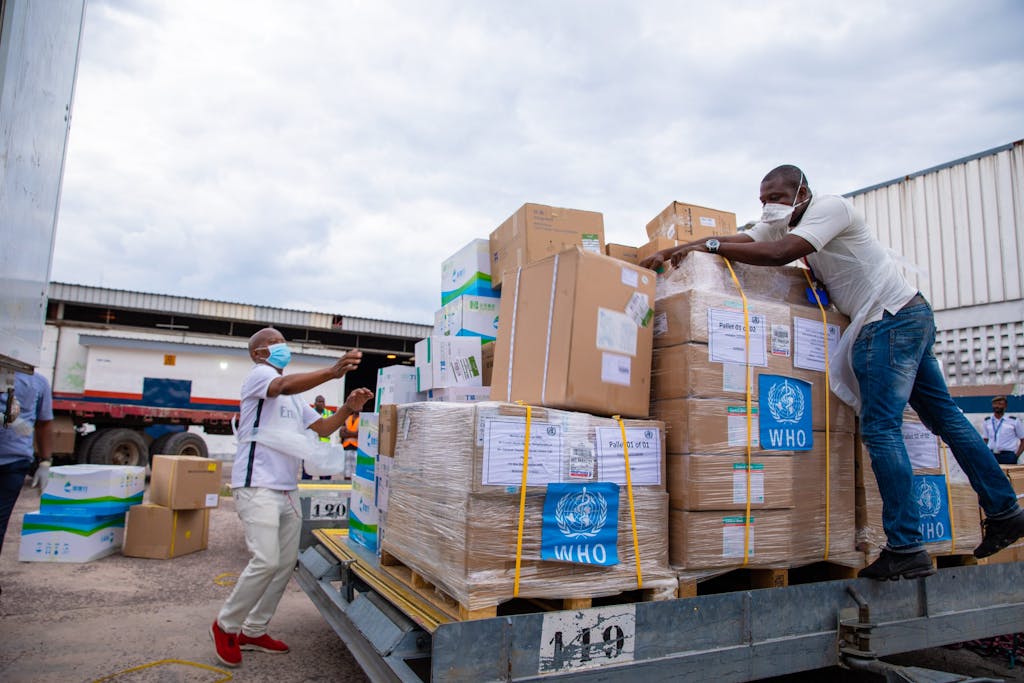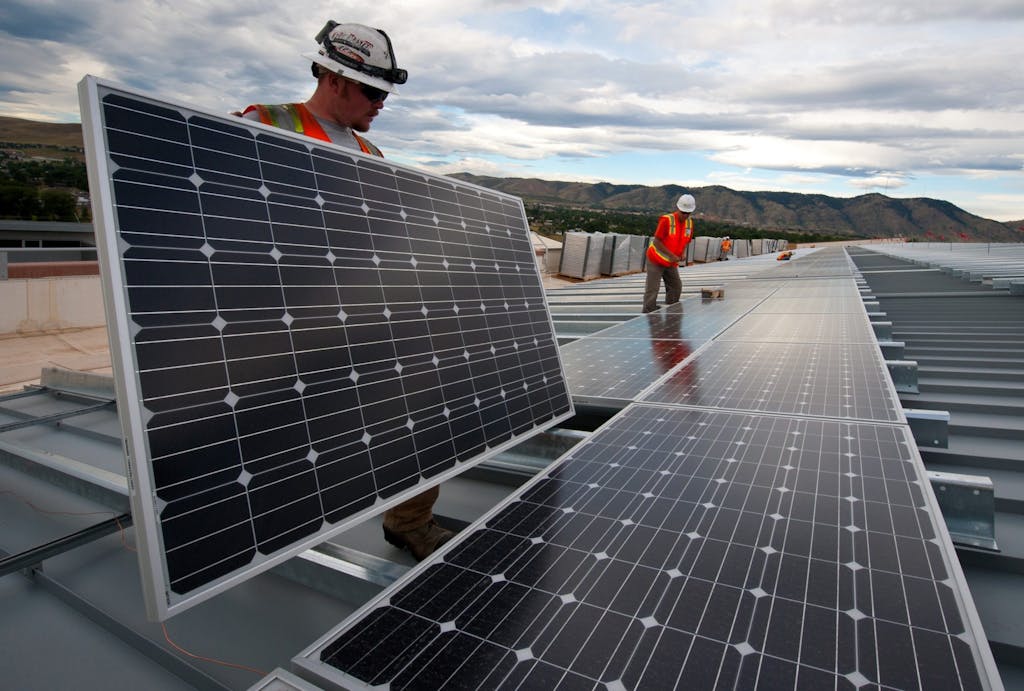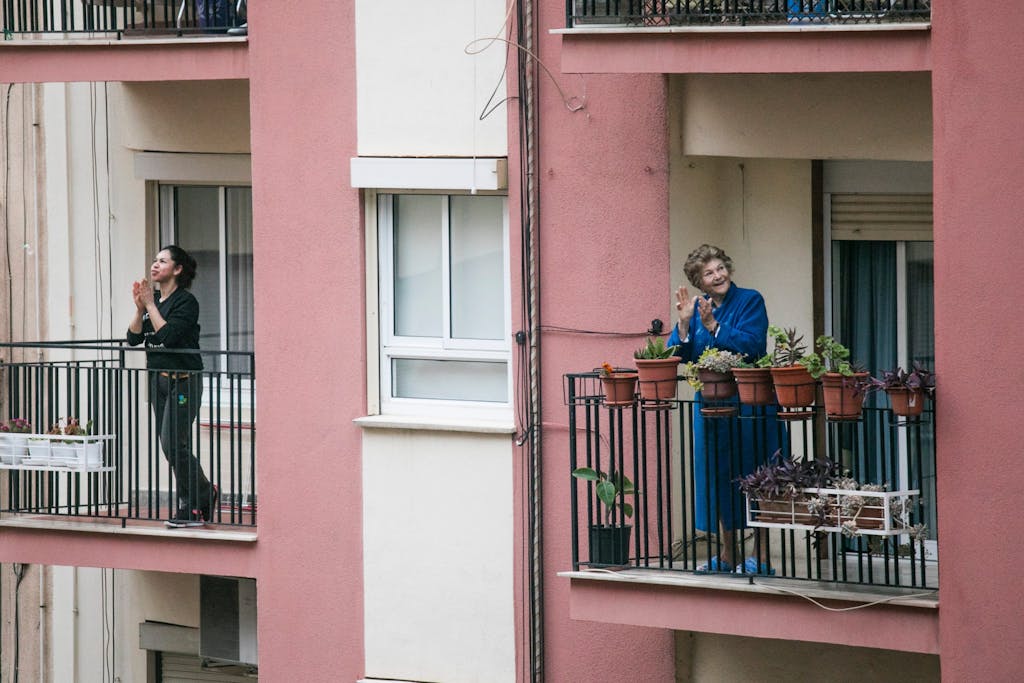2021 will be an opportunity to leverage the hard lessons of the past year and work in solidarity to accelerate the much-needed progress to achieve our shared goals.
The year that ushered in the final Decade of Action to deliver the Sustainable Development Goals (SDGs) started with the world already acutely aware of being off track to achieve them by the 2030 deadline. Then came COVID-19.
The pandemic is not only a health crisis, but also a socioeconomic crisis, an inequality crisis, an education crisis, a gender crisis. Not only did it knock us further off course for the Goals, but it revealed and exacerbated underlying inequities that show we were already leaving way too many behind. Now, as a result a billion students are out of class, domestic violence against women is up by 30% in some places, and at least 71 million people could fall into poverty. Even under the most optimistic scenarios, achieving Goal 1 – eradicating extreme poverty by 2030 – is now an even more monumental task.
But the crisis also spurred global cooperation in unprecedented, innovative ways with new partnerships and new leadership and new voices that we can build upon and include in our agenda as we embark on a new year.
“That is the lesson of 2020,” United Nations Secretary-General António Guterres said in a speech in December. “Solidarity is humanity. Solidarity is survival.”
And that includes shared partnership and collaboration through the SDGs because the events of this year have demonstrated unambiguously how interconnected the Goals are.
We know we cannot tackle food insecurity without addressing climate change. We know we cannot address inclusive economic growth without bringing women to the table. We know we cannot improve access to education without ensuring every child is connected to the internet.
The past year has shown us that the world already has the blueprint to help us all recover better together: the SDGs and the Paris Agreement.
So, as we look to 2021, we cannot talk about reaching solutions without even greater solidarity and cooperation at all levels of society — national governments and leaders, the private sector and civil society, and not least, young people who are already leading the way in demanding action on some of our most urgent shared problems. The COVID-19 crisis has demonstrated the world’s ability to come together quickly and innovatively to address shared challenges. That’s going to be increasingly important.
Here are a few shared global lessons we can carry forward to both protect and accelerate progress in this Decade of Action:
A Global Financing Community
The crisis galvanized our financing and funding mobilization efforts in monumental ways. Governments, businesses, civil society organizations, and — crucially — people all over the world banded together quickly to help support the global health response led by the World Health Organization (WHO). The UN Foundation’s own efforts through the COVID-19 Solidarity Response Fund really showed what solidarity can look like. The Fund, which was set up in March to support WHO, has raised more than $238 million from over 650,000 individuals, companies, and philanthropies. It has also helped the world’s leading healthy agency establish critical early efforts to deliver vital equipment all over the world and coordinate global vaccine development. This year also saw concerted efforts to address the $2 billion in necessary aid required to help vulnerable communities as part of the Global Humanitarian Response Plan. And $49 million was raised in support of the UN COVID-19 Response and Recovery Fund to support middle- and lower-income countries.

Solving Global Problems in Solidarity
Global cooperation and mobilization throughout the scientific community and industry furthered unprecedented achievement in developing a vaccine in less than a year. We saw heads of state, world leaders, and philanthropists join efforts by WHO under the Access to COVID-19 Tools (ACT) Accelerator to develop and distribute vaccines, and pledge to support the COVAX facility to ensure distribution of vaccines to the world’s poorest communities. It will now be up to the world’s richest countries to help fill financial shortfalls to ensure fair and equitable access to the vaccines to protect the most vulnerable populations.
Bigger, More Ambitious Global Commitments
Despite a year of setbacks, the world also made headway on some of its most pressing issues, leading with urgent progress on climate action. While the planet still recorded one of its hottest years, we nevertheless saw strong international support to invest in climate change actions as part of the economic recovery driven by commitments from the European Union, Japan, South Korea, China, and other countries. We saw companies around the world step up their pledges to reduce their global emissions. And cities, businesses, and investors joining global promises to achieve a decarbonized economy ahead of the COP26 climate conference, where governments will be expected to strengthen further contributions to the Paris Agreement.

Human Resilience
And the pandemic showed us the best of our human spirit. We saw strangers help one another. We saw members of our community cheer in support of essential front-lineworkers. We saw local businesses donate lifesaving supplies. We saw people all over the world changing their habits, making deep sacrifices, and adapting their everyday lives when faced with an existential threat. We saw human spirit persevere. We must continue to build on these lessons to recover better and build more resilient societies for all.
In 2021, we will need to bolster this momentum to address the global challenges we will face: a poverty pandemic, a hunger crisis, massive humanitarian needs, rapid climate change, and gender inequality — a depth of crisis we have yet to fathom.
Four global tests will be critical to our success to urgently shift the world onto a better track:
The Sustainability Test
National governments will face the threat of managing a double crisis as higher swaths of their populations are swept into unemployment, poverty, or even hunger. To build back better, policymakers will need to craft policies that can both rescue and protect their most marginalized and vulnerable communities. That means stimulus packages, fiscal policies, and new social safety net protection programs that place sustainability at the center of these efforts. It will be critical that such economic programs be crafted with the right set of incentives to help us achieve multiple SDGs at once, like creating green jobs that can both protect the environment and improve our social welfare; like increased spending in renewable energy over fossil fuels; like future-proofing investments in education, innovation, and research. Done right, these massive recovery undertakings can put us on a pathway to achieving the SDGs. Done wrong, they will lock us in financially and economically for the foreseeable future in the wrongs of the past. Policy planning will require more regional and local-level actions and targeted funding to help those worst affected and draw in the informal sector. Best practices and policies will need to be shared transparently among all stakeholders — governments and regions, nongovernmental actors, and the private sector — to ensure that we can maximize our best ideas and greatest outcomes for all. Wealthy countries will also need to withstand their own reasonable domestic pressures and avoid rolling back on international commitments and on global solidarity to help the world’s poorest, including eliminating debt burdens. And multilateral institutions — the United Nations, the International Monetary Fund, the World Bank, and the main international groupings of leading industrial nations such as G-7 and G-20 — will be essential in bringing together collective efforts to overcome these challenges and achieve inclusive solutions to lift up the most marginalized and vulnerable communities.
The Inclusion Test
For the SDGs to succeed, we need greater inclusion from all corners of society: human rights advocates, nongovernmental partners, empowered youth and girls. To recover sustainably and fully, we need to understand that the recovery cannot be guided from above alone, that the people and the grassroots should take the lead. We must take seriously the preamble of the UN charter — “We the Peoples.” In 2020, we saw an expansion of fresh, new voices that were brought into critical global conversations. We heard from 15-year-old Aasha Shaik, who spoke to the United Nations Working Group on Girls this year on the importance of codifying girls’ rights. Youth climate activists such as Nisreen Elsaim of Sudan and Ernest Gibson, co-coordinator of regional youth-led network 350 Fiji, who are among seven youth advisers to the United Nations to help scale up climate action. We know their voices are essential in leading and amplifying the call of a sustainable and inclusive recovery for all. And we must continue to grow and expand these efforts to bring many more to the table so that everyone can have a say in the decision-making progress
The Innovations Test
Human innovation across all sectors and walks of life will be a critical component as we climb out of the current crisis. We will need greater focus and increased financing to advance innovative ideas that will put us back on a sustainable pathway. The global crisis showed us the ingenuity of partners that responded by leaping into action and crafting creative, innovative solutions like designing data hubs to track the pandemic in more than 30 countries across Africa or creating safer cleaning products with probiotics. Our ability to build on these innovative practices through scale and replication across different geographies will define our ability to achieve the SDGs.

The Global Solidarity Test
COVID-19 showed us in no uncertain terms that our world is smaller than ever, and that to reach our goals we must work together in unity setting aside our domestic ambitions and committing to a multilateral framework. National governments will need to resist the urge to turn inward to their own domestic needs, and remember their commitment that no single nation will be able to go it alone. The choice of solidarity will be in our own self-interest as we fight a common enemy that knows no boundaries — a message repeatedly echoed by the secretary-general. Solidarity will and should take on a whole new and very tangible meaning in 2021 as we, as a global community, aim to recover from the pandemic. It will also require leadership at all levels — private sector, academia, local governments, citizens — in helping to design the solutions to achieve our goals collectively. We will be faced with several critical milestones on climate action, poverty, biodiversity, and gender equality that could all be used as steppingstones to further global solidarity and make headway on the most pressing issues for humanity. The UN’s Food Systems Summit, expected during the September General Assembly, will help us to secure stronger momentum as we tackle the global challenge of changing how we consume and produce the world’s food. And later in the year, COP26 will be yet another opportunity to measure progress and advance our collective ambition on climate action.
The outcome of these four global tests in 2021 will be indicative of our human resolve to deliver concrete actions collectively — or else fall into an even deeper crisis that could jeopardize our ability to jump-start progress on the SDGs. We have learned valuable lessons this past year that can and must help us meet the challenges ahead — and the stakes could not possibly be any higher. 2021 must be the turning point to make the necessary hard choices to fulfill our global promises.
Featured Photo: UN Photo/ Cia Pak




 View All Blog Posts
View All Blog Posts



